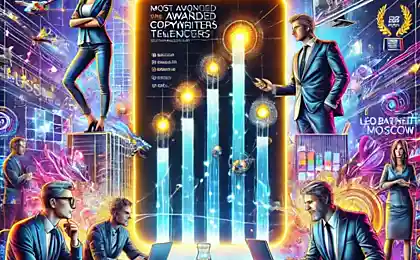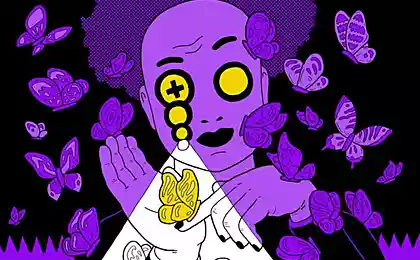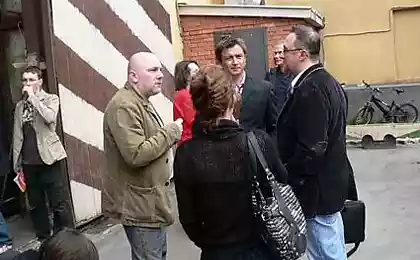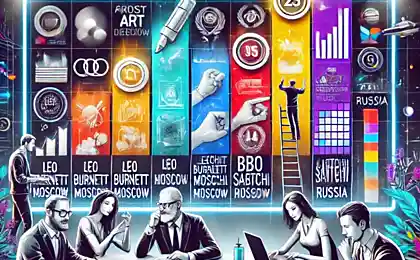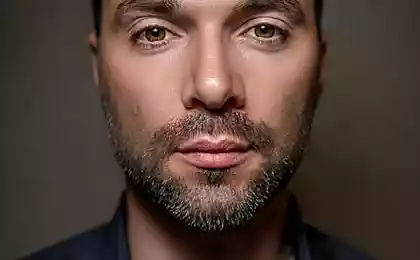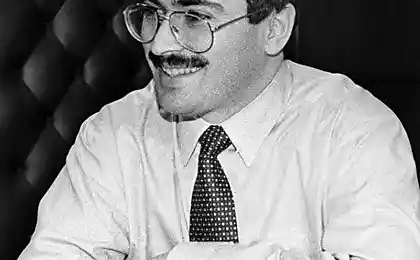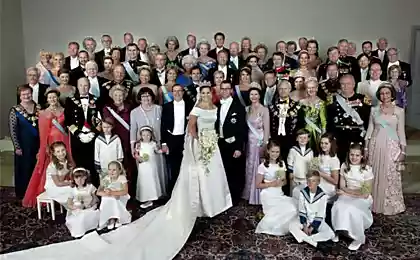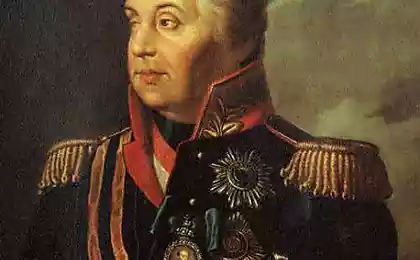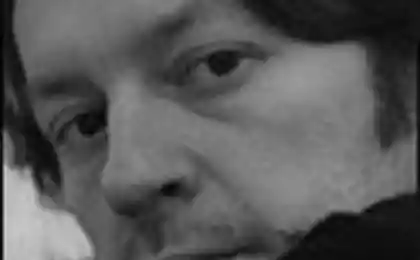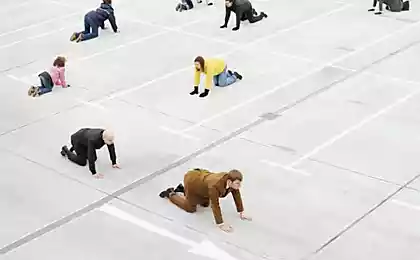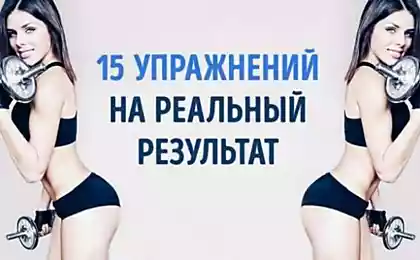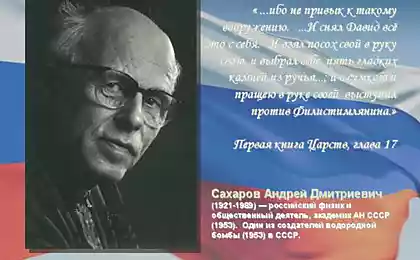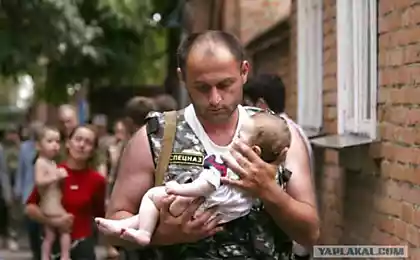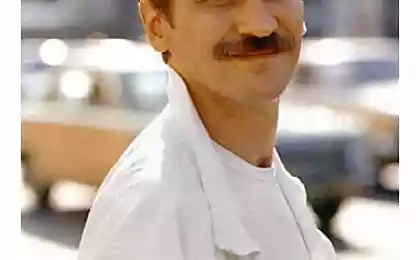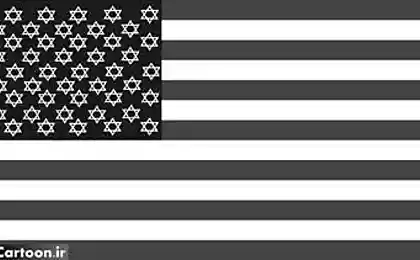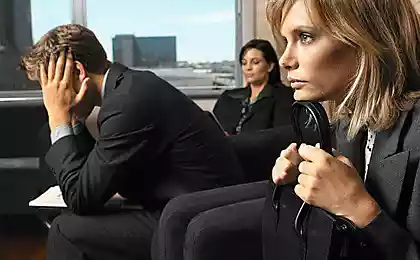687
"The whole discourse of terrorism aimed at the establishment of the national audit office:" an interview with Jonas Staal
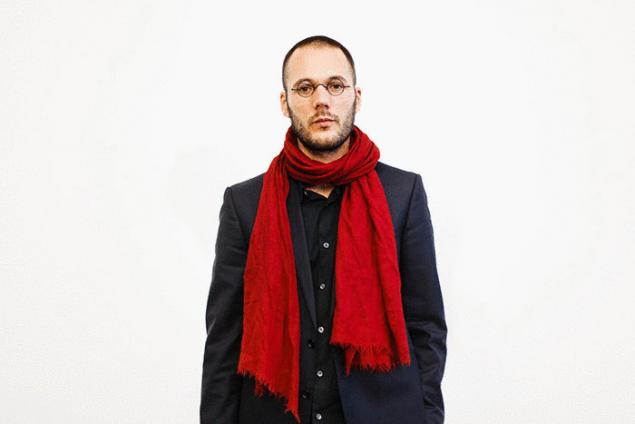
© Mikhail Goldenkov
Dutch artist Jonas Staal advises to get rid of the outdated logic of the understanding of art as a simulacrum or a medium who can ask questions or hold a mirror aimed at the world, but can not change the world itself. In 2012, he created an artistic and political organization of the "New world summit", which holds congresses of political parties, declared a terrorist. Giving the right to speak is prohibited groups, Staal has shown that the "war on terrorism" was conceived to justify state terror.
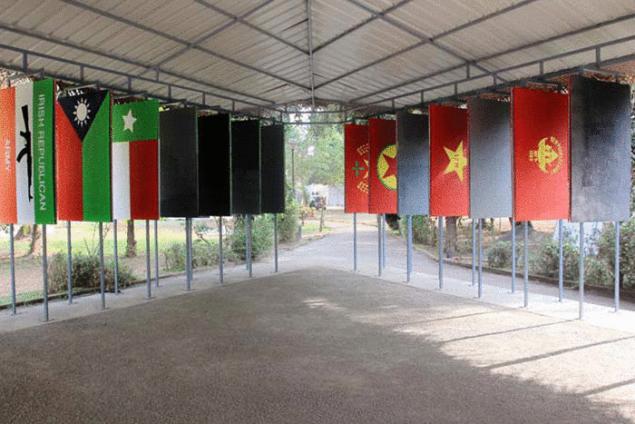
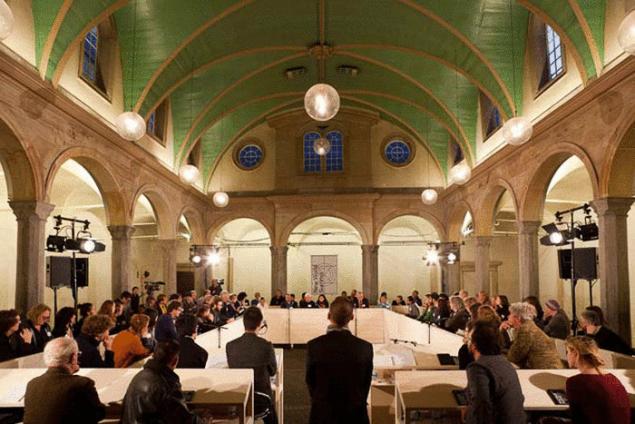
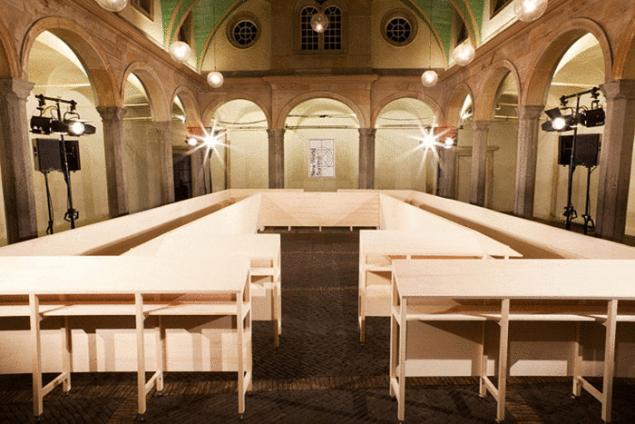
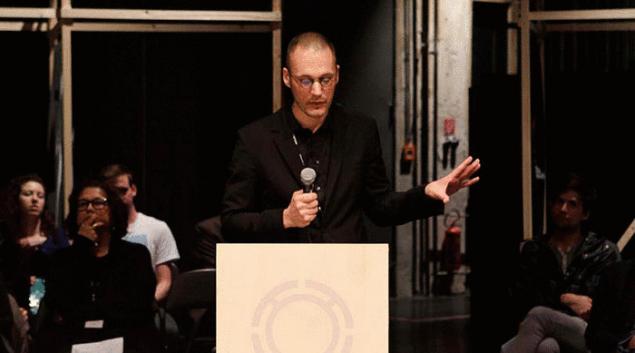
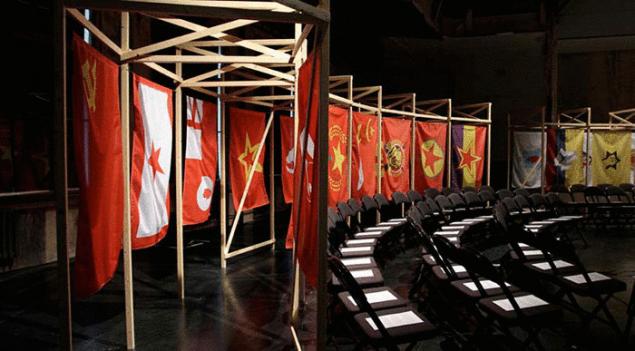
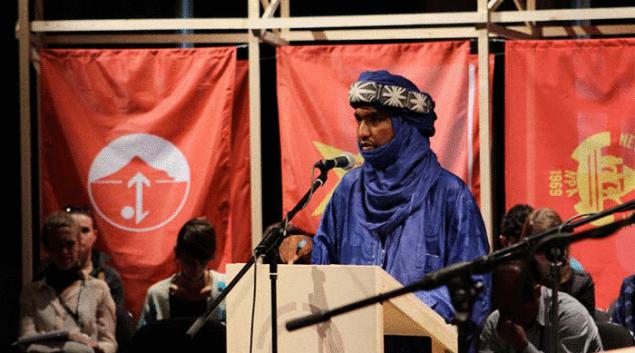
— I would like to talk about your project "New world summit", which was partially presented in Moscow in September of last year in the exhibition "Extraordinary and Plenipotentiary". Why have you decided to invite those organizations which have been declared "terrorist", and not, say, "extremist", which is more capacious and ambiguous term? For example, in Russia it is used for stigmatization of certain political opposition groups.
— Terrorism and extremism, is a descriptive term, but it also bears a very specific meaning, as it is a foundational concept of politics, beyond the jurisdiction that developed in the twenty-first century. Starting from the moment that war was declared against terrorism about a decade ago, terrorism in Western and global context has become a concept aimed not only at the allegedly "marginal" group, but on civil society as a whole.
Structural exclusion from the political sphere concerns not only the "terrorist" organizations; the dissident and progressive groups, too, can absorb the depths of the unclear legislation. Essentially this whole discourse of terrorism does not imply punishment that the state defines as terrorism, but is aimed at establishing control and engineering of civil society. From that moment began the war against terrorism, "state of emergency" has become a global norm, and that the terminology and legal tools that should be used rarely, could be used against the informant — think Assange, manning and Snowden — with the same ease that the protesters and representatives of social movements like Gezi Park, where many participants were arrested and were condemned as terrorism suspects.
In fact, the concept of terrorism is used to legitimizatsii state terror: the war against him had served the expansion and strengthening of the legal powers of the state at the global level. Radical mass monitoring information to the national security Agency is an example of how the world's population is subjected to a predictive search of potentially subversive information, if not pre-emptive killing (in the worst case). At the moment, with the growing influence of the self-proclaimed Islamic state in Iraq and Syria is the enemy, embodying the history of Western military intervention in the region, the state found yet another reason to make the status of a citizen is more fragile and vulnerable.
For example, Australia, faced with the fighters of ISIS, born in this country and probably wishing ever to return home, announced the possibility of revoking the passports of those citizens who traveled to Syria, when "suspicious circumstances". The government proposes to expand police powers to search, creates the conditions for arrest without a warrant and authorizes the Australian security intelligence service (ASIO) to suspend passports where necessary. Actually, "the Golden age of terrorism" has begun even before the fall of the Berlin wall in 1989 was the result of a fundamental split between the two power blocs: the Soviet Union and the United States along the anti-colonial States (e.g., Libya Gaddafi), which is financially supported by the dissident and revolutionary groups. 9/11 was not a new manifestation of stateless terrorism, on the contrary, it established an unprecedented form of global state terror.
Included you in "the Summit" any openly militaristic organizations — for example, right-wing parties, or only groups that match your own views, but which was named a terrorist?
— The first three of the Congress that we organized in Berlin, Leiden (the Netherlands) and Cochin (India), focused on the groups listed in the international list of terrorist organizations; we invited them, regardless of their history and political orientation. I think at its core the policy by which political organizations have received the status of a stateless, fundamentally contradicts the notion of democracy.
For example, in the European Union, the so-called clearing house (clearing-houses) have to decide who is included in the list, and who is not; their Commission is composed of people who publicly unknown; they meet twice a year in closed areas, where decisions are made about black lists; the evaluation criteria are not publicized, and the transcripts of their meetings do not exist. No matter who is included in the black list; I think we should start with the fact that this process of incorporation is a criminal act that has serious consequences: the ban movement, the international prosecutions and the blocking of Bank accounts instantly puts representatives of these organizations outside the state. Cynical the fact that usually they are the Palestinians, Kurds, Basques are the representatives of States without a state deprived of statehood by including them in a blacklist that confronts us with "limitations of democracy", the positions and discourses that cannot be suppressed. "New world summit", in contrast, offers the notion of unlimited democracy as the basis for emancipatory politics.
"9/11 was not a new manifestation of stateless terrorism, on the contrary, it established an unprecedented form of global state terror"
Anyway organizations that interact with us, exploring forms of democratic practice; it's not necessarily establish a liberal parliamentary democracy, but create structures of political representation, which guarantee an equal distribution of power and wealth. Democracy is a structure that socializing access to resources, and there are many ways how to act according to this principle. The groups that we represent — such as Maoist-oriented Communist party of the Philippines and the "National movement for the liberation of Azawad" had serious militaristic components. Resistance to monopolies of power by military means could be the beginning of the process of articulation of democratic structures: the first step is to get the power, based on unjust distribution, to abandon the capture of "General" that is not given without a fight, without at least the threat of a possible struggle.
— What are the results of your Congress? Did the participants come to a consensus? Or rather wore conflict, "agonistic" character?
It depends on the summit, because each of them was structured differently. The first summit in Berlin lasted for two days. On the first day entitled "reflections on the closed society", representatives of organizations that fall into the black list, told about its history, its goals, and how they faced the "limits of democracy", once in this list.
On the second day, called "Proposals for an open society", the audience asked organizations about their motives, goals and attitudes towards the use of violence. His goal was not to come to a common agenda, but rather to distinguish the multiplicity of voices that were forcibly involved in the discourse of terrorism. These groups had a different ideological orientation; when Fadil Yildirim (Fadile Yildirim) spoke on behalf of the Kurdish women's movement (Kurdish Women Movement), she questioned the adoption of existing States or requirements for their recognition, as, for example, in the case of politics the Basque, zawadski and Filipino representatives who were present. According to the position of the Kurdish women's movement, the construct state is a system of Patriarchal relations on the basis of which operate the processes of exclusion — in particular, the subordination of women to man. In General, she thought about the fact that democracy is achievable through the liberation of the state through a radical feminist politics. This discourse produced a fundamental split within the strategies suggested by different speakers, despite the fact that they are United by solidarity and mutual exchange.
"New world summit" is trying to show the multiplicity of ideological and political struggle that remains hidden behind existing monopolies of power in politics, economy and media. We are trying to write narrative "stories in terms of resistance." For the audience we are trying to introduce how our policy-based exception and to give a voice to those who have been depressed. These voices can reflect the flexibility of our own position in the era of mass surveillance much better than States that promise to protect us.
— In Moscow you have presented an architectural model of the summit. Why did you decide to place it in the frame of the exhibition space instead of organize a similar event with the participation of Russian and international political groups?
— In the "New world summit" today included ten people from the field of art, architecture, design, philosophy and diplomacy. We have three main areas of work with which we interact: first, we organize summits, and secondly, we have a school — "the New world Academy" (founded together with the institution of Utrecht BAK, basis voor actuele kunst, through which we provide artists and students the opportunity to interact with a stateless political groups that are included in our network; and thirdly, we are creating a reporting exhibition in these two areas.
The fourth "New world summit" we were organized on September 19-21, he was devoted to state without a state (The Stateless State) and was held at the Royal Flemish theatre in Brussels, which brought together about twenty representatives of such States from around the world — such as Kurdistan, West Papua, Somaliland and Azawad. In October, primary teacher in "the New world Academy" was chosen by writer and representative of the political and military organization — "the National movement for the liberation of Azawad", which was a series of lectures "the Art of creating a state".
For the implementation of these projects was accompanied by an incredible effort, years of research and spending of financial resources. Also, each summit was burdened by legal technicalities, that we should be aware of. And, of course, difficult to find institutions willing to engage with such projects as the majority of cultural institutions are connected — if not completely dependent from the state or big private capital, and therefore the choice of critical positions for them are not so simple. So we can't organize a new session every time. But it is equally important that the knowledge gathered during each of the summit, continues to spread. Knowledge of the discourse of political groups, but also of artistic methodology, which should be developed. The exhibition is part of this allocation process.
So far we only talked about the summit and how he can through the field of art to interact with the discourses and stories that fall into the black list. But I am also talking about the "New world summit" as Parliament — about the new territorial constructs that we create for each new edition, and which explore sociogeographic and execution of policy. We proceed from the position that ideology is more than a discourse, an ideology, first and foremost, is the ability to form. Physical and visual quality of a space and the bodies that occupy it, define the ideas themselves.
For example, if you look at the house of Commons in the UK (House of Commons), which is the Parliament square, that the labour party are on one side, conservatives on the other, but the chair is located on the third. This antagonistic model rocked a few years ago, when the liberal Democrats emerged as a third force. But their appearance kind was due to the form of the Parliament: there is only one of the four walls remained free, next to the labour party and the conservatives, facing the chair: now there is a mixture of these two parties located in the intermediate empty space of the Parliament. Since the policy was caused by the form, the main question is how we can imagine the fourth, fifth, sixth force. The problem of Parliament as we know it, is that it is designed to restrict and manipulate the political imaginary. Progressive politics is just the same to release it.
"New world summit" aims to bring back the policy back to the place of her birth; it is a complex understanding of how we play the world through art"
We can say that the body is moving in space, but I would rather say that the body also takes playing in this space. Social sculpture — it is a practice which makes possible collective performance. They often say that when a politician is lying, he's "just playing the show". I would say that the problem of politics is not that it is too theatrical, but rather that she is not theatrical or it's reactionary theater, which cannot question its own conditions of existence. Theater as an art is not a simulacrum. We create the world through representation. Through the art we present to the world and so we can influence it.
"New world summit" aims to bring back the policy back to the place of her birth; it is a complex understanding of how we play the world through art. The radical power of imagination, this art, it is political power that allows the art to be more political than politics itself, because it is able to question its own existence.
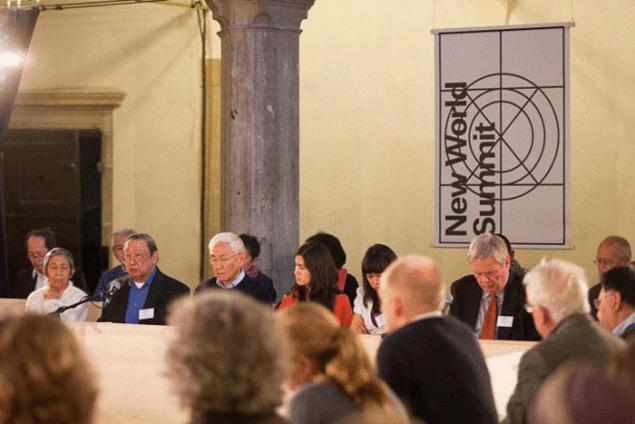
— Your example with the house of Commons sounds like a structural decomposition of the political spectrum according to a geometric logic... However, you touched on the relationship between art and politics still remain a stumbling block among artists and critics. You openly involve real political figures in artistic practice — they are not deprived thereby of their power? Your argument is paradoxical: you say that "the art of politic policy", because it has a specific space, legal instruments and capacity of the imaginary. What do you mean by legal tools and space? What policy should occupy, and then expel the infrastructure of art, because the artist in this context is given more freedom of expression and resources than the opposition policy?
— The "new world summit" is usually criticized for two reasons: there is criticism, which uses the art for political purposes; there is also criticism that uses the policy for artistic purposes. These two options are the opposite of criticism, but at the same time they are the result of a violent separation between politics and art; or, as you say, between art and "real politics".
This position lies in the fact that the introduction policy space, depriving it of force and the introduction of art in the area of policy or inefficient or is no more than propaganda: it should "leave" the world of art to become politically effective. Really depoliticise element in this logic is, of course, this very reasoning. It eventually leads us to the understanding of art as a simulacrum, a medium that can ask questions or hold a mirror aimed at the world, but can not change the world itself. Such reasoning simply reproduces the status quo, is the art of thriving, "making capitalism more beautiful", as succinctly noted by the artist Hito Steyerl. But there is not one art world, there are worlds of art.
"I'm against the reactionary propaganda and logic, which assumes that there is only one world. Progressive art sees and creates a radical multiplicity of forms, worlds, languages, spaces, time and history."
In our "New world Academy" students were trained and contributed to the work of such stateless groups like the Communist party of the Philippines, the collective of refugees We Are Here, and the "Pirate international". Each of them suggested a radically different political practice, and thus each of them has defined a place for art. In other words: each offers its own, another world of art. I'm against the reactionary propaganda and logic, which claims that art can only aestheticize politics: the logic of helplessness, suppression of the imaginary, which only serves the status quo. It assumes that there is only one world, and it is false. Progressive art sees and creates a radical multiplicity of forms, worlds, languages, spaces, time and history: a different imagery.
— You consider "New world summit" as a model, outline or matrix for rethinking democracy? Or do you still suggest that this is the policy, that is, your project could function as a real political force?
— I think it's both. To define the "New world summit" as an artistic and political organization is to believe that imaginary art, his ability to question the conditions of representation can and must go hand in hand with social and political transformation: practical everyday work is needed, as he said to Upton Sinclair, to create the world.
But as for myself, I treat myself to an artist tout court. Not as a political artist or a socially-engaged artist. I'm not going to abandon these terms, if they help people to clarify what I'm doing, but for me, the word "art" is such a new world. And add to it the word "politics" is like stating the obvious.
Source: theoryandpractice.ru
